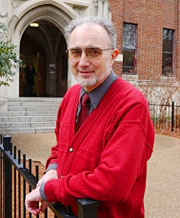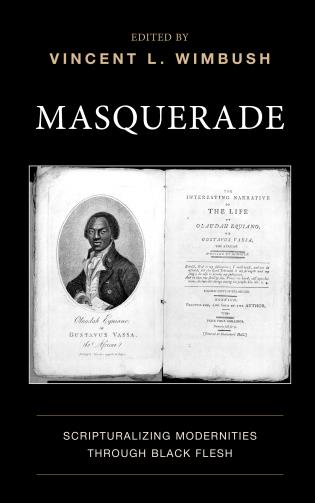
Some Reflections – Daniel Patte
March 17, 2017
Reflection on ISS 2017 Annual Meeting – P. Kimberleigh Jordan
March 18, 2017Reflections on the Second Annual Meeting of the ISS – Alonzo Huntsman

The second annual conference of the ISS convened in Charlotte to focus on the notion of the state/nation, its  construction and how ideas of citizenship and belonging are understood and enforced.
construction and how ideas of citizenship and belonging are understood and enforced.
The topic could not have been more prescient given our own nation’s recent election results and how some of the words spoken and actions taken by the new administration in Washington D.C. exemplify some of the problems of nationalism, nativism and ethnonationalism.
Words matter. The focus of the ISS in critiquing the relations of discourse and power had much to work with. In a very real sense, the words of the U.S. President become a type of scripture on their own, sanctified by the simple fact they have been uttered by the highest office of the land. Words from the president have the power to set the tone of civil interaction, they sanctify ideological perspectives and model acceptable behavior.
But what if the pronouncements of our nation’s highest office fail to meet the expectations of a majority of citizens? What if they are the antithesis of civil? What if in they serve to demonize citizens and residents. What if they feed hate, promote lies and implicitly sanction corrosive, bigoted behavior? Policing of nationalism and even ethnonationalism is done through discourse.
For example, what are the implications of tough talk on immigration? What are the implications of the fixation with immigrants from Mexico and not Canada? Are we not a nation of immigrants? Are some types of immigrants better than others? Are we not all human beings, brothers, sisters, mothers, fathers, sons, daughters searching for the best lives we can achieve for ourselves and our family? An intense and exaggerated focus on immigrant related crime has implications for all immigrants. In fact, those who find themselves in this country without the necessary bureaucratic stamps of approval are criminalized for their very being, they are called out as “illegals” and “aliens.”
What we witness as a result of this discourse is the criminalization of individuals and families that seek better lives for themselves in a territory other than the one in which they are born. Moreover, for those born “legally” (as if one could be born otherwise!) who have the physical characteristics, cultural attributes or linguistic traits that differ from white America, suspicions of illegality or criminality are implied. Americans of Latin American heritage suffer from the political rhetoric designed to unite a majority white political base.
And what of this “fake news” that featured so prominently in the run up to the election? Today’s story of a Hillary Clinton led child sex ring run from a New Jersey pizza shop has parallels with yesterday’s outrage of a black man raping a white woman. They don’t need to be true to be powerful. Fake news articles are little more than coded tales that reinforce the basest of malignant thinking. Their proliferation during the election season served to unite various groups into virtual political communities.
For me the most powerful event of the second annual meeting was the viewing of Ava DuVernay’s NETFLIX documentary: 13th. The film unpacked the history of race and incarceration in ways where it was impossible not to see the structural factors leading to the remarkably disproportionate jailing of Americans—compared to other countries—and people of color in the U.S. —when compared to whites.
Systems of oppression are durable and continue to reinvent themselves. Corporate interests, like ownership of private prisons, reap financial gain from the number of bodies (disproportionately black) imprisoned on a daily basis. Corporate interests were behind the legislation of “three strikes and you’re out” and “mandatory minimum sentences” that have put hundreds of thousands behind bars. Mass incarceration has had a devastating impact on poor communities and disproportionately poor communities of color. Political scare tactics designed to produce votes (“The Southern Strategy” and Willie Horton) serve to demonize some people over others. The ability to profit from punishment serves to broaden the behavior considered criminal. And race and wealth are part of this equation. Those who are rich and guilty can make bail and hire lawyer’s to fight their cases. Those who are poor and innocent spend time in jail when they can’t make bail, and then cop a plea deal rather than take the risks and suffer the expenses of a court trial.
13th provides the starkest of example of the creation of “scripture” codified as criminal law. These laws become part of our civil structure, benefiting certain interests while decimating others.



